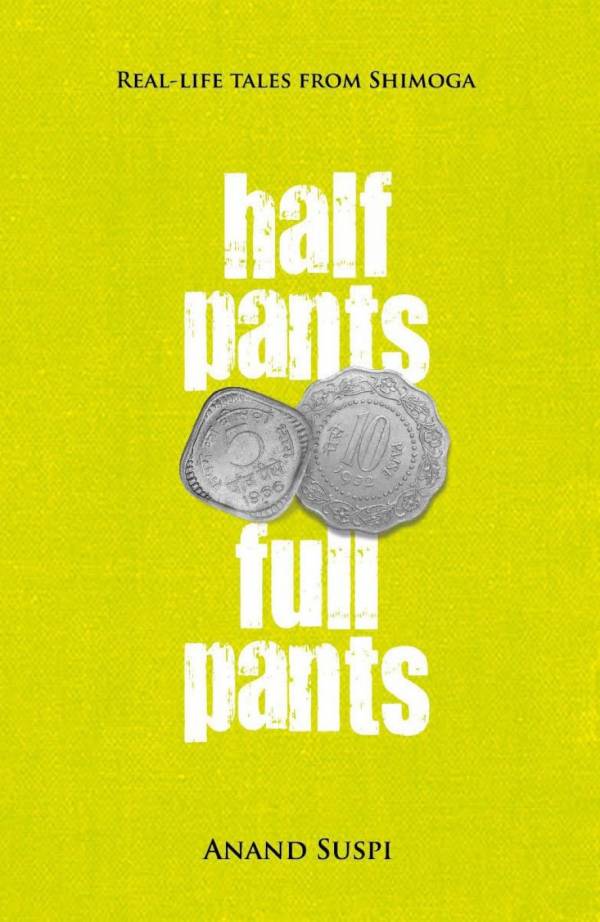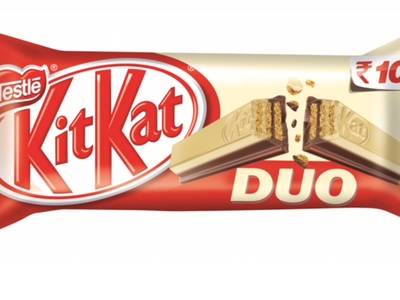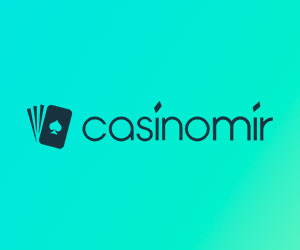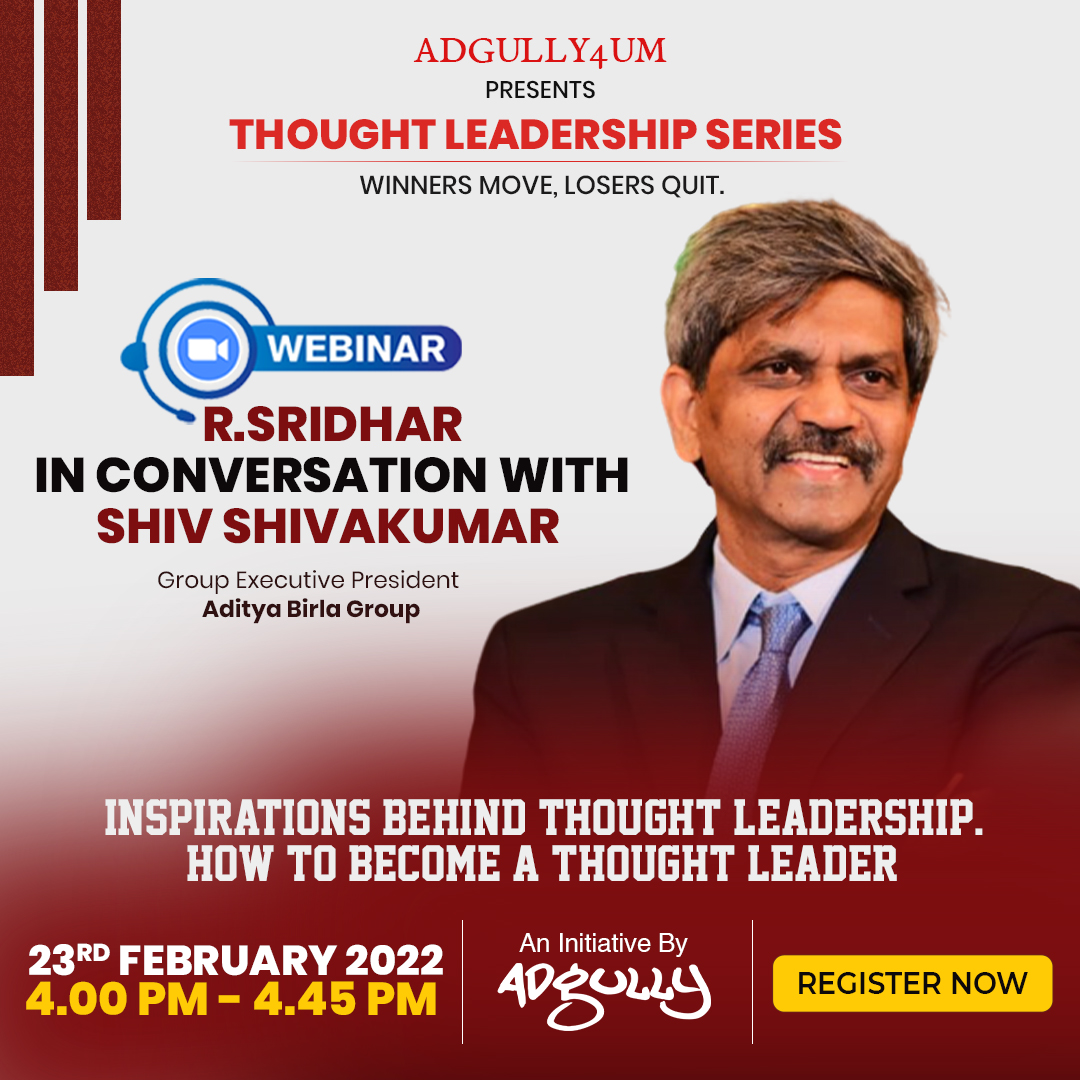‘Half Pants Full Pants’ is an accidental piece of work: Anand Suspi
“After ‘Malgudi Days’, I could never imagine that somebody could create another childhood classic for adults to regain their innocence, even for a few hours. Suspi’s tales would have made RK Narayan smile. Oh! That beautiful Kannadiga gene!”, wrote renowned filmmaker and former adman R Balki as he penned down the foreword for Anand Suspi’s debut novel, ‘Half Pants Full Pants’.
From playing a rare instrument, to asking Rajiv Gandhi intimate questions, to practicing dolphin dives, to hanging out of a running train in the middle of the night, to witnessing a world record, to being caught in a flood of sambar, to learning kung-fu with mosquitoes, to becoming the ‘inventor’ of capris, to making magnets, to planning a borewell – Suspi’s memoir of childhood stories imbibes them all. It is a collection of real-life stories of growing up in Shimoga, Karnataka. At once an ode to innocence and mischief, ‘Half Pants Full Pants’ is a collection of effortlessly-told memorable little tales guaranteed to set off a journey back in time.
Anand Subbarao, popularly known as Suspi to those who have known him since 1993, has been an advertising writer for the past 20 years. Starting with Mudra Mumbai in 1995 as a Servicing Trainee, Suspi moved on to Lowe Lintas, where he spent 12 years of his life. After putting his papers in August 2010, he then started his own agency, And And Brand Partners, in 2014 with Gionee. The agency today has 30+ people and has specialist digital and retail divisions. His campaign for USAID, ‘Condom. Bindaas Bol’, had won the Grand Effie in 2007.
Adgully caught up with the ace adman to know more about his experience of penning down ‘Half Pants Full Pants’, the secret behind the name, response from the readers, key learnings and life beyond Lowe Lintas. Excerpts:
What motivated you to write ‘Half Pants, Full Pants’? Where did the inspiration come from?
This is an accidental piece of work! At any point I did not imagine that I would write a book. About six years ago when I left Lintas, I had a lot of spare time and thought of trying to write just one page to convince myself that I could write beyond advertising. Writing for ads is very different from long format writing or writing a book. I wasn’t sure if I could write a page or more as I didn’t know what to write about. I recollected some childhood memories and thought of putting down some pages of my childhood. Once I started, one memory led to another and then another. I then realised there were so many childhood incidents that I could recall in great detail. That’s how the book happened – so, you could call it a very accidental book.
Why the name ‘Half Pants, Full Pants’?
The book is my childhood autobiography – from my earliest memory till the time I went to college. It is a collection of short stories and all of them are based on real life incidents. The book is divided into two sections – ‘Half Pants’ is from KG to Class 7, while ‘Full Pants’ is from Class 8 onwards – hence the title. In the 70’s and 80’s in a small Indian town called Shimoga, like any other kid in India, we had to wear only shorts till middle school. From Class 8 onwards, we were considered grownups and were allowed to wear full pants too. So, that was the idea behind the title of this book – an autobiography of how I grew up from 70’s and 80’s till the early 90’s.
How long did it take you to write this book? What was the entire experience like?
It is very strange and I guess it happens with a lot of people writing their first book. I wrote the book very quickly, and it being my first book, there were no filters in my head. This is not fiction or imagination, everything is real. Six years ago, I used to spend a lot of time in Gurgaon and Mumbai – spending a month in Mumbai and returning home to Gurgaon for 15 days. So I wrote the book in batches during those 15 days when I was at home. But in all, I managed to complete it in 55-60 days. It took me about 3 to 4 batches of 15 days to write the book.
The experience was very beautiful and cathartic because after years of being on the corporate side I went back 35-40 years before liberalisation, before internet and mobile – when life was so much simpler and beautiful. It was wonderful remembering all those little details of my childhood. The only audience that I had in mind were my childhood friends, how we would remember our childhood incidents and have a good laugh.
The book has been compared to the all-time classic ‘Malgudi Days’. Your comments...
I never had any dreams about writing a book, forget ‘Malgudi days’! That was never the intent. However, the comparison with ‘Malgudi Days’ is not surprising because there are a lot of similarities in the way I grew up – a very small town, my father who was a railway guard, and issues like respectability, doing the right thing, academics, etc. But ‘Malgudi Days’ is based in the 40’s, while this story is about the 70’s and the 80’s. People who are in their 40s now – mostly from small towns and middle class background – must have undergone similar experiences. So I just captured all the incidents of how I grew up and it just naturally felt like ‘Malgudi Days’ as it is a lot similar to that time.
How has been the response so far? Any key learnings that you would like to carry forward in your future endeavours?
Since this is my first book, I am figuring out a few things. I don’t have a benchmark for it. Sales is definitely a benchmark, but I don’t think it is like that for this book. The good thing is that it is not being done by a publishing house, as one of the challenges for a debut novelist is that if a publishing house picks up the book, the first print run will not be more than 3,000 copies. Here, because Paperboat is doing it, there are 11,000 copies, which is a huge number. In the Indian literary industry, around 6,000-10,000 copies qualify to be a bestseller. So the bright part is that we have got 11,000 copies, out of which we managed to sell about 2,400 to 2,500 books in the last 4 months, which I think is a pretty decent number. Also, the joy is that whoever read the book had wonderful things to say about it. Till now this is my only reward. It is going to take some more time for the word to spread. Also, Paperboat has sent out copies to 2,400 people who are real influencers of India and a lot of them have reacted to it on social media. Everyone’s reaction to the book is so positive, as most of us have spent the same time and done similar things. Today, all of us are living in a very complex, fast-paced world with tools and technology that a lot of us want to escape back to the world of simplicity.
Any thoughts on penning down more books?
I haven’t had this one in mind either. I still plan on writing more, but my life is 10 to 14 hours of advertising every day at my own agency at Gurgaon. So, a lot of time is dedicated to advertising, which is my bread and butter. I hope that I am able to make out time from advertising and do it. People have done numerous things at the same time. In my case, it is not impossible, but really difficult as advertising and literature require very different mind-sets. So as soon I have that time in hand I will start with something else.
How has been the post-agency life?
A large part of my career was spent with Lowe Lintas, which I quit in 2010 to start my own agency. So life hasn’t turned. Earlier, I used to work for an agency and today, we have our own mid-sized agency. Nothing has changed apart from the fact that we are working in a small basement office and also it is much more challenging to get clients and retail clients, otherwise everything is the same as before.






















Share
Facebook
YouTube
Tweet
Twitter
LinkedIn